Home remedies have long been touted as natural, cost-effective solutions for everyday ailments. With a plethora of advice circulating online and through word-of-mouth, it’s easy to be lured into trying these remedies without fully understanding the risks involved. While some natural treatments can offer relief, others can lead to dangerous complications. In this comprehensive guide, we delve into eight common home remedies that might do more harm than good.
Whether you’re considering using kitchen ingredients to treat burns or gargling with mouthwash for unusual benefits, this article will help you understand the science behind these remedies and the potential risks associated with them.
Kitchen Cures for Burns: The Hidden Dangers of Using Household Ingredients
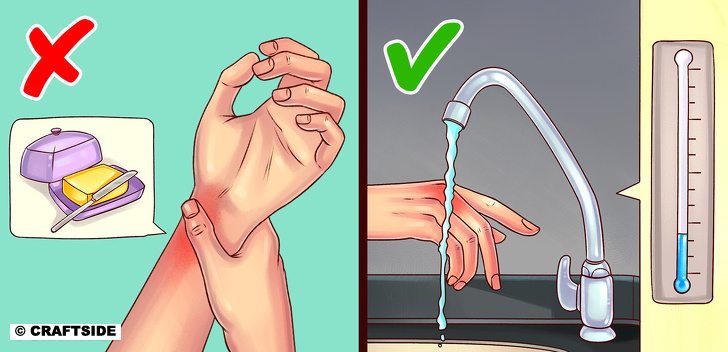
Many people turn to their kitchen cabinets for quick fixes when they get minor burns, assuming that natural ingredients like butter, aloe vera, or even ice can provide immediate relief. However, not all kitchen remedies are safe or effective for treating burns.
Risks of Using Kitchen Remedies for Burns
Contamination and Infection: Applying butter or other dairy products to a burn can trap heat in the skin and create an environment conducive to bacterial growth. This increases the risk of infection and may delay proper healing.
Improper Cooling: Using ice or extremely cold substances directly on a burn can cause frostbite or further tissue damage. The American Burn Association advises cooling burns under running water instead of applying ice directly.
Delayed Medical Treatment: Relying on home remedies might delay professional care for more severe burns, increasing the risk of complications such as scarring and infection.
Expert Advice:
For safe burn treatment, it is crucial to run the affected area under cool water for at least 10 to 20 minutes and then cover it with a clean, non-stick bandage. For more severe burns, seek immediate medical attention. Learn more about burn care from the Mayo Clinic.
Toothpaste to Treat Acne and Cold Sores: When DIY Backfires
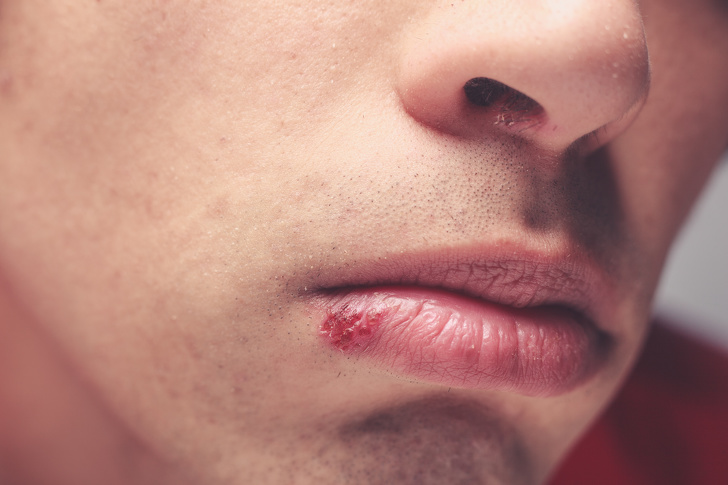
Toothpaste is often mistakenly considered a quick fix for acne and cold sores due to its drying properties. Despite anecdotal evidence, dermatologists warn against its use on the skin.
How Toothpaste Can Harm Your Skin
Irritation and Dryness: Toothpaste contains ingredients like baking soda and hydrogen peroxide that can irritate the skin, leading to redness, peeling, and even chemical burns in sensitive areas.
Disruption of Skin pH: The pH balance of your skin is crucial for maintaining its barrier function. Toothpaste can disrupt this balance, making the skin more vulnerable to infections and worsening acne or cold sores.
Ineffective Treatment: While it might initially dry out a pimple, the long-term effects often include increased inflammation and scarring. Professional treatments and over-the-counter acne products are designed to target acne without compromising skin integrity.
Expert Insight:
For safer acne and cold sore management, consult with a dermatologist and consider products specifically formulated for your skin type. More detailed information can be found on Healthline.
Gargling with Mouthwash: Overuse and Potential Harm
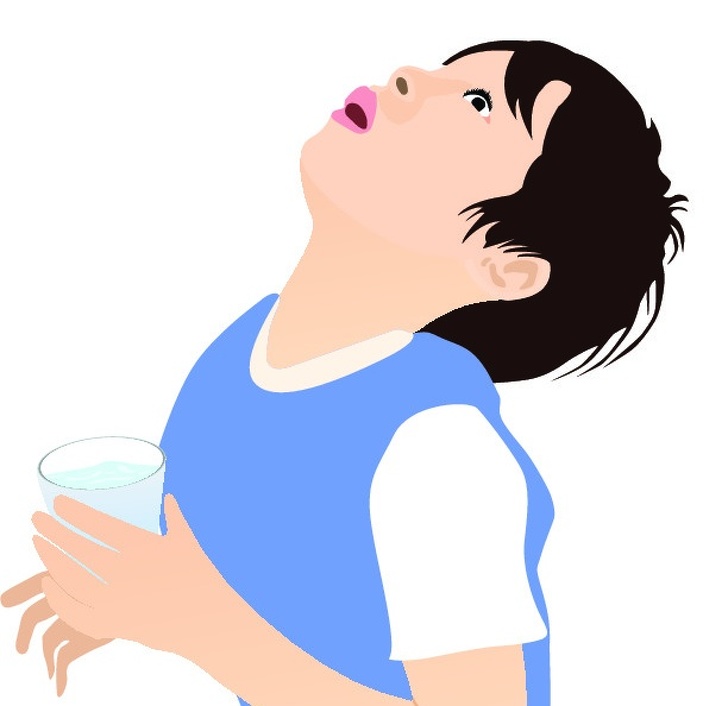
Gargling with mouthwash is a common practice for maintaining oral hygiene, but using it excessively or inappropriately can lead to unintended health issues.
Dangers of Excessive Mouthwash Use
Oral Microbiome Disruption: Mouthwash is effective at reducing bacteria, but overuse can disturb the natural balance of the oral microbiome. This disruption may lead to issues such as dry mouth, increased susceptibility to cavities, and gum irritation.
Chemical Burns and Irritation: Some mouthwashes contain high levels of alcohol or other harsh chemicals that can cause irritation or burns on the delicate tissues of the mouth and throat when used too frequently.
Potential Systemic Effects: Although rare, prolonged exposure to high concentrations of certain mouthwash ingredients may lead to systemic side effects, particularly if swallowed accidentally.
Expert Recommendation:
For maintaining oral hygiene, follow the instructions provided on your mouthwash bottle, and consult with your dentist if you experience persistent irritation. For further reading on safe oral care practices, visit WebMD.
Wart Cutting: The Risky Business of DIY Wart Removal
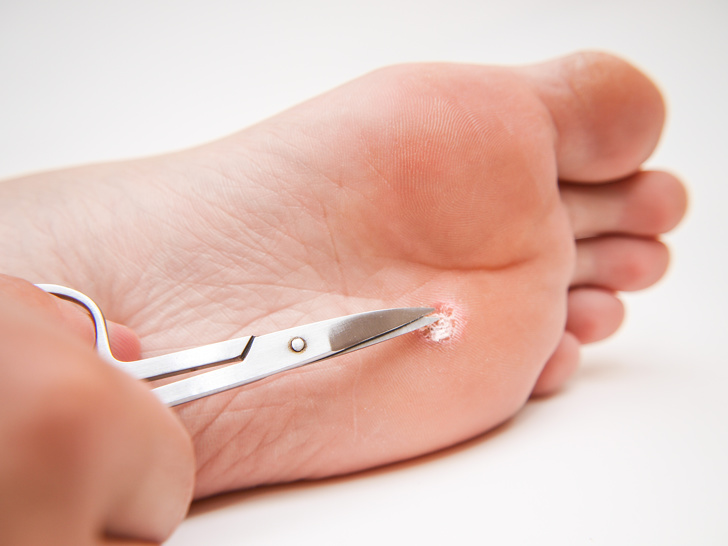
Removing warts at home might seem like a straightforward task, but DIY wart cutting can be fraught with risks, particularly when performed without proper medical guidance.
Complications Associated with DIY Wart Removal
- Infection and Scarring: Cutting warts with unsterilized instruments can introduce bacteria into the skin, leading to infections and permanent scarring.
- Improper Removal: Without professional expertise, there is a high chance of incomplete wart removal, causing the wart to recur or spread.
- Pain and Bleeding: Improper techniques can result in significant pain, excessive bleeding, and damage to surrounding healthy skin.
Medical Guidance:
Professional treatments like cryotherapy, laser therapy, or topical medications are recommended for wart removal. For more details on safe wart treatment options, check out resources from Mayo Clinic.
Toothache Whiskey: Why Alcohol Is Not the Answer
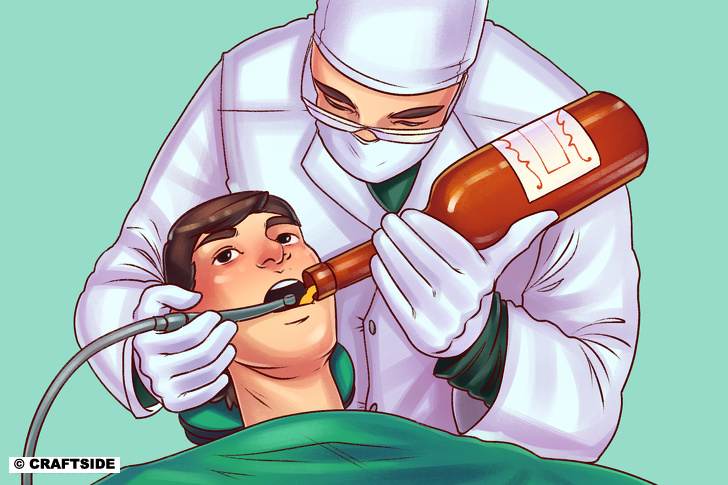
Using whiskey or other types of alcohol as a home remedy for toothaches is an old wives’ tale that can be more harmful than helpful.
The Dangers of Using Alcohol for Toothache Relief
Irritation and Tissue Damage: Alcohol can irritate the sensitive tissues in the mouth and exacerbate the pain it’s meant to alleviate. It may also cause further damage to the gums and dental structures.
Masking Serious Conditions: Relying on whiskey for temporary relief can mask underlying dental issues, such as infections or cavities, delaying necessary professional treatment.
Risk of Addiction: Habitually using alcohol as a painkiller can contribute to dependency issues and other health complications associated with excessive alcohol consumption.
Safer Alternatives:
For toothache management, over-the-counter pain relievers and cold compresses are more appropriate. It is essential to consult with a dentist for a thorough diagnosis and treatment plan. More insights can be found on WebMD.
Other Dental Remedies: When Home Treatments Turn Risky
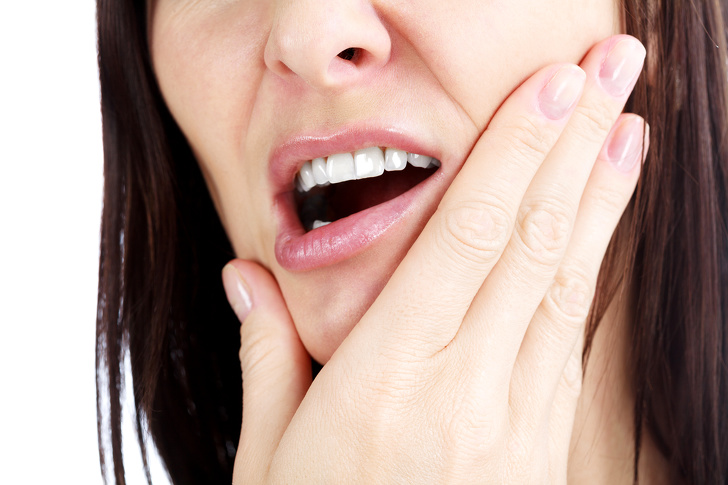
Many DIY dental remedies circulate online, promising relief from dental pain or whitening effects. However, not all home dental treatments are safe or effective.
Risks of Unverified Dental Remedies
Enamel Damage: Using abrasive substances like baking soda or activated charcoal excessively can wear down tooth enamel, leading to sensitivity and increased decay risk.
Gum Irritation: Home remedies involving essential oils or undiluted herbal extracts can irritate and damage the delicate tissues in your mouth.
Lack of Scientific Backing: Many of these remedies lack robust scientific evidence to support their efficacy, and their long-term effects are often unknown.
Professional Advice:
For safe dental care, it is crucial to follow the advice of dental professionals and use products that have been rigorously tested for safety and effectiveness. For reliable dental care information, refer to American Dental Association.
Castor Oil for Quick Work: The Perils of Rushing Natural Treatments
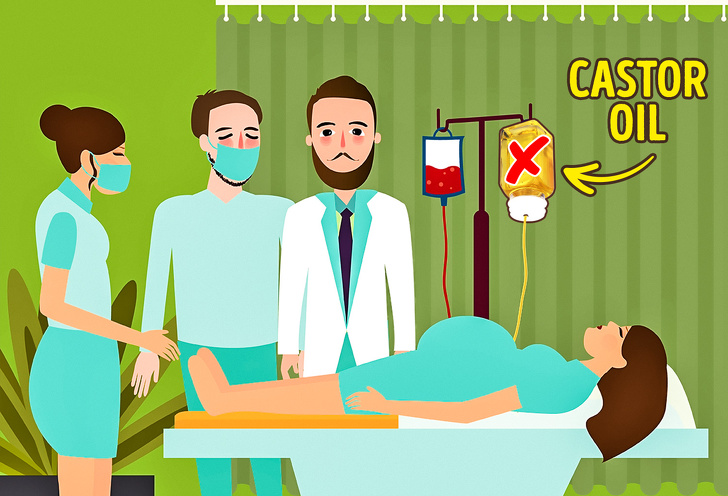
Castor oil is commonly promoted as a miracle cure for a range of conditions, from skin inflammation to joint pain. However, when used improperly or as a quick fix, it can lead to adverse effects.
How Misusing Castor Oil Can Be Dangerous
Skin Irritation and Allergic Reactions: Some individuals may experience severe skin irritation or allergic reactions to castor oil, particularly when applied undiluted.
Digestive Disturbances: Ingesting castor oil as a laxative can cause abdominal pain, diarrhea, and dehydration if not used under medical supervision.
Delayed Proper Treatment: Relying on castor oil for quick fixes might delay seeking appropriate medical advice, potentially exacerbating underlying conditions.
Expert Caution:
Always consult with a healthcare professional before incorporating castor oil into your treatment regimen, especially if you have a history of allergies or digestive issues. For further reading on the safe use of castor oil, check out Healthline.
Candling Earwax: A Hazardous Practice with Hidden Risks
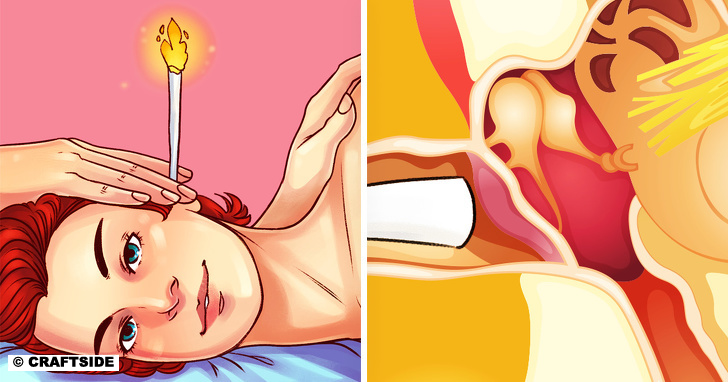
Ear candling, a practice involving the use of a hollow candle to remove earwax, has been marketed as a natural remedy for ear health. However, multiple studies have shown that this method can be extremely dangerous.
The Risks Associated with Ear Candling
Burns and Injuries: Ear candling can cause burns to the ear, face, and scalp if not performed correctly. The open flame poses a significant risk, particularly in a home setting.
Ear Canal Blockage: Instead of removing earwax, the process can push it deeper into the ear canal, leading to blockages, hearing loss, or infections.
Lack of Efficacy: Scientific research does not support the claims that ear candling effectively removes earwax. The FDA has even issued warnings against its use due to the potential for serious injury.
Safety Tip:
For safe earwax removal, consult a healthcare provider who may recommend irrigation or manual extraction. For more on ear health, visit Mayo Clinic.
Conclusion: Weighing the Risks of Home Remedies
While home remedies can sometimes provide convenient and cost-effective relief, they are not without risks. This guide has highlighted eight common DIY treatments that can put you in danger—from kitchen cures for burns and toothpaste for acne to toothache whiskey and ear candling. The allure of natural treatments should be balanced with caution and informed decision-making.
Key Takeaways:
Know the Risks: Understand that many popular home remedies are not scientifically validated and may lead to complications such as infections, tissue damage, or delayed medical treatment.
Seek Professional Guidance: Always consult with healthcare professionals before trying unverified remedies, especially for conditions that may require medical intervention.
Rely on Trusted Sources: Use reputable resources such as Mayo Clinic, WebMD, and Healthline to guide your health decisions.
By staying informed and cautious, you can avoid the hidden dangers of DIY treatments and protect your health. Remember, while the idea of natural home remedies is appealing, not all that glitters is gold. When in doubt, professional advice is the safest remedy of all.
For more detailed information on safe health practices and alternative treatments, explore authoritative sources and remain up-to-date with the latest research. Stay safe, make informed decisions, and let expert guidance be your first remedy.









Leave a Reply